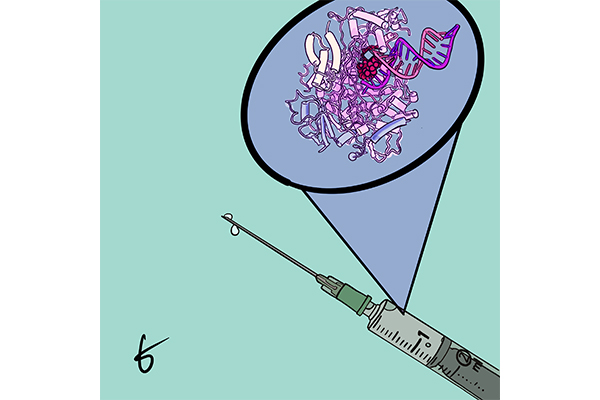A new prescription flu drug, Xofluza, created with research done 40 years ago by Robert Krug, professor emeritus of molecular biosciences, was recently approved by the Food and Drug Administration and will be available across the U.S. in the coming weeks.
In 1978, Krug discovered a unique way in which the flu virus replicates itself. He called it “cap-snatching.” This mechanism involves the virus using the body’s cell division process to make copies of itself, eventually leading to a person getting the flu. His research was published in 1979, but he said it took a few years for his findings to be accepted by the scientific community and for companies to fund the development of a potential drug.
Forty years later, Krug’s conclusions from his research remains relevant and drug companies decided to use his discoveries to produce the new, more effective flu medication.
The discovery of the cap-snatching mechanism allowed a pharmaceutical company called Shionogi and Co., known for creating the cholesterol-lowering medicine Crestor, to design a new antiviral drug called Xofluza. The drug was approved by the FDA on Oct. 24 for use by patients 12 years or older who display flu symptoms for less than 48 hours.
Xofluza is unique in that, unlike other flu medications, it only has to be taken once to treat the flu. In addition, the drug represents the first novel treatment mechanism in nearly 20 years and displays significant efficacy in treating high-risk populations, according to the FDA.
Genentech, another company that helped commercialize and develop Xofluza, now partially owns the rights to it and is responsible for continuing to improve the drug. Genentech spokesperson Heather Gloe said the medication takes effect in a little over a day.
“Xofluza is a convenient treatment option that significantly reduces the duration of flu symptoms by more than a day with a single oral dose,” Gloe said.
Krug said he spent much of his career combating the flu virus, a disease that has been historically difficult to make medications for.
“A major reason that influenza has been difficult to treat is the high mutation rate of the virus,” Krug said. “This is why vaccines have to be upgraded every year to combat new strains.”
Krug’s work focused specifically on tracking the molecular steps of the replication of the flu virus.
Virus replication involves an enzyme called polymerase that copies the virus’ genetic material as RNA, an “instruction sheet” for viral proteins, and then sending it to be assembled into a new virus.
“It was known for several years that the virus polymerase is unable to initiate the synthesis of viral messenger RNAs, which direct the synthesis of viral proteins,” Krug said, referencing the fact that viruses are unable to reproduce by themselves and need a host in order to reproduce.
Krug’s work unearthed the previously unknown details of virus replication in humans. Cap-snatching was the term used to describe how the virus utilized the human RNA fragment to initiate the synthesis of viral messenger RNAs, Krug said.
“This is another instance whereby basic research leads to the benefit of human health,” Krug said
Xofluza is currently permitted for use on a limited group, but Genentech hopes to eventually expand Xofluza’s scope to cover pediatric populations and other vulnerable groups, according to Gloe.
“Genentech is committed to helping people who are prescribed Xofluza get access to the medicine,” Gloe said. “Xofluza has the potential to offer an improved treatment for one of the most common, yet serious infectious diseases worldwide in both otherwise healthy and high-risk populations.”





















